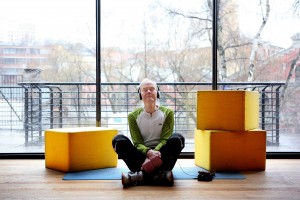How to cope with ageing societies is one of the grand challenges pointed out in the Lund Declaration. The rapidly growing population of elders confronts Europe with a double demographic challenge. The ageing population’s need for healthcare services increases at the same time as the access to workforce declines. Given the services as they are today, the needs for care in the population will at some point surpass the available workforce. Healthcare technologies can be increasingly important for the society to be able to offer health and care services at a quantity and quality that mirrors the expectations of the European populations. So, how can we best use new technology in care services, and what type of policy options are policy makers faced with?
This project comprised the following actions:
- The establishment of a European stakeholder group with members from research, industry, elderly care and CSO’s, and the development of a method description and training program for scenario workshops
- Description of the available care technology and home-based telemedicine and an overview over expected developments. This included smart houses, biosensors, tracking devices, communication technologies and robotics. With the technology description as a point of departure, a set of scenarios for implementation and use of technologies in an ageing society were produced. The Stakeholder Group commented on the overview of technologies and the scenarios in a workshop, at which the stakeholders provided their views of the future development, their preferred policies, and they commented on the scenarios.
- Production of an overview of policy measures related to telecare and home-based telemedicine in the European countries and regions. It included brief information on demographic trends, policy levels, and the relative mix of private, public and family care, as well as specific eHealth policies, ranging from competence building and support programmes to infrastructures, incentives and rights.
- Organisation of scenario workshops in Norway, Denmark, Austria, Bulgaria, Catalonia (Spain), Wallonia (Belgium), Czeck Republic, Ireland and Hungary to assess the diversity and commonalities across Europe with regard to the expectations and preferences on the technologies and challenges in question. Each workshop gathered stakeholders from the following groups: Healthcare personnel; patients/users and carers; technology developers and researchers; and decision makers from the local and national levels:
- Production of a policy report comparing the outcomes of the scenario workshops and presenting the commonalities and differences across Europe, as input to national as well as European policy-making. The report will be launched at a Policy Conference in Brussels on 17 March 2015 for experts, stakeholders and policy-makers. In addition the results were presented for discussion with the relevant parliamentary committees in all the involved countries.





